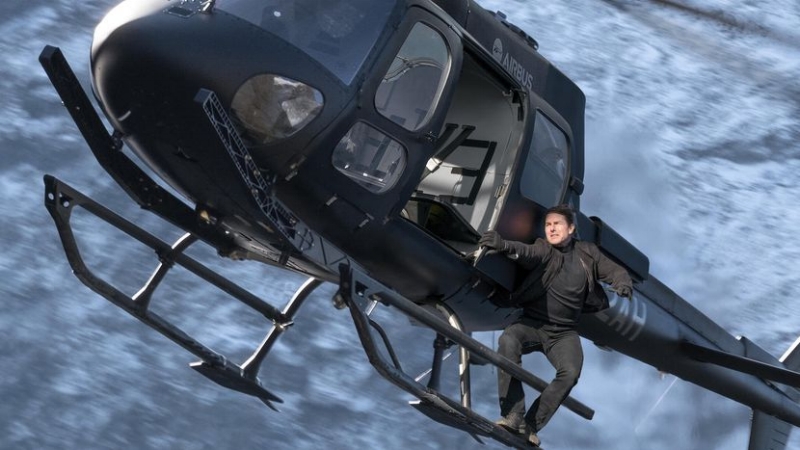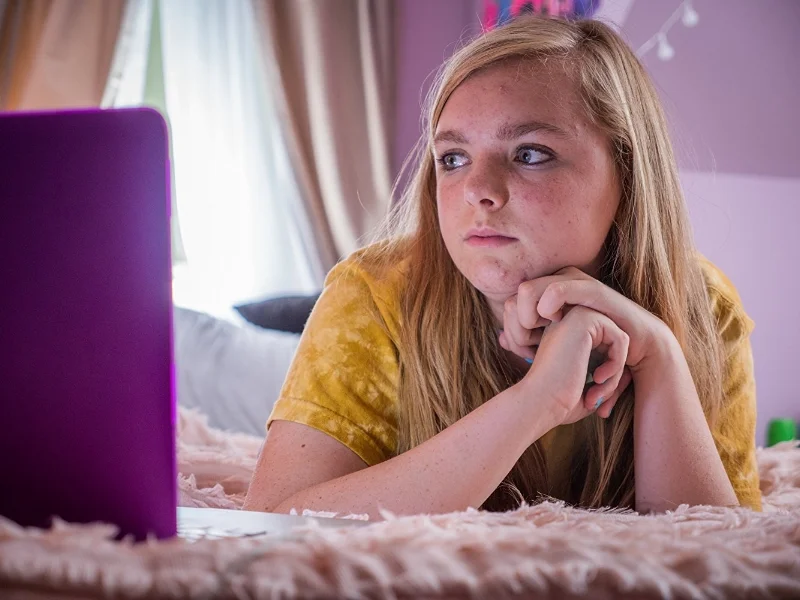BLINDSPOTTING
Directing: A
Acting: A
Writing: A
Cinematography: A-
Editing: A
Every once in a while, when I feel like it's taking me a minute to decide how I feel about a movie, I work backward from a default of perfection: what things are wrong with it? Even if it didn't necessarily change the world, or exactly rock my world, does that count as a flaw? What reason might I have to tear it down from the best appraisal I can give it?
Blindspotting is one of those rare movies where the answer to that question is: none. There is nothing wrong with this movie.
At least, not from my perspective as a white guy watching it -- and yes, that context is relevant. It could easily be said that this movie, directed by first-time feature director Carlos López Estrada, is for white people. Black audiences might like it fine, but they're not going to find anything illuminating about it. A more cynical person might say it could be called White Privilege: The Movie.
It's also fair to say many white people would be less likely to watch it when the movie is explained in that context, given how quick to defensiveness white people tend to get when tasked with talking about race. Or, for all sorts of reasons, fearful: when I first saw the trailer with a friend, a white woman, she said, "That looks stressful." It's about a black man nearing the end of probation, with a white best friend who behaves recklessly with little mind to how he endangers those around him, and who witnesses the Oakland PD shooting of an unarmed black man. Of course it looks stressful.
Except . . . most of the time, it isn't. The marketing hints at this, but doesn't fully reveal how much fun there is in much of Blindspotting. Not that it's a ride through a fun house all the way through, mind you. The flawlessly crafted script, co-written by Daveed Diggs and Rafael Casal (who both also star, respectively as Collin, the aforementioned felon; and Miles, his best friend), takes care to bring us casually into their world, these close best friends who are both working class guys watching the systematic gentrification of their city before their eyes. This yields a lot of great detail, such as the city's symbol of the oak tree, which now exists there only in that form, in images on city flags and signs -- except for the hipster who uses a giant oak tree stump as a coffee table in his living room.
Blindspotting is beautifully specific, in both its sense of a place in transition, and of a culture in crisis. Rafael Casal is excellent as Miles, the best friend who is slow to realize what he really gets away with compared to most of the people in the local culture he both emulates and is a product of. He's just as much to blame for the crime that landed Collin in custody, but guess which one of them had to serve any time?
It seems on the surface like a contrivance when Miles gets mistaken for the gentrifying hipster he professes to despise, but it's really a bit of stealth brilliance in writing. The scene that follows, which makes sense for Miles's character but follows Blindspotting's general rule of never quite going in the direction you might expect, works on multiple levels. And the rapport between Mikes and Collin establishes a foundation that, when it begins to crack, underscores both the significance of their situation and the key difference in their individual places in it.
Collin and Miles are also casual rappers, thankfully this time not with any particular aspirations of making it as professional; rather, they just rap as a way of shooting the breeze, helping each other with their rhymes. This is a key element of Blindspotting's musical character, with a skillfully integrated soundtrack that also includes a truly tense climactic performance by Diggs. Collin confronts the cop who killed that other young black man, and he does it in rhymes.
All of which is to say that Blindspotting is hardly the "lesson movie" to be endured like a homework assignment, that some are wont to fear. It's a tightly constructed film that stands on the strength of its own storytelling. It's subtly provocative in ways of more use to some than others, but worthy of equal appreciation by all. It's easily one of the year's best films.
A couple of moving company employees are here to move you with their singular vision.
Overall: A









